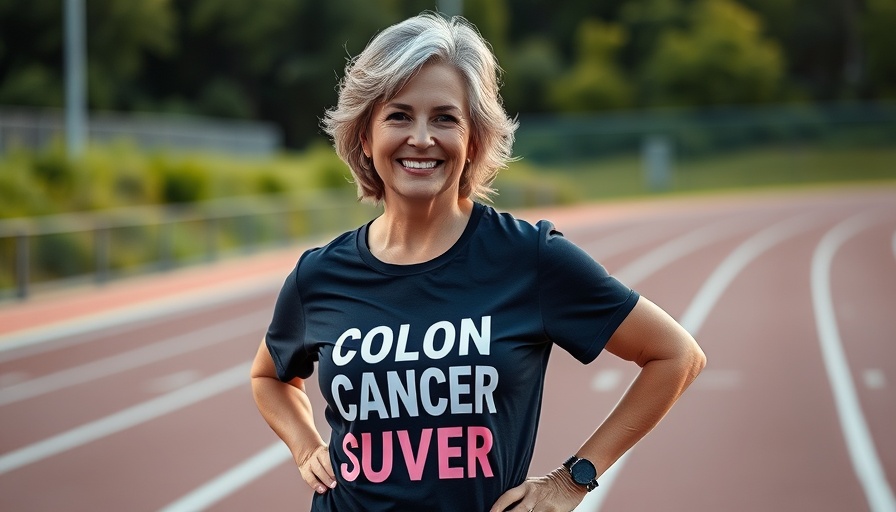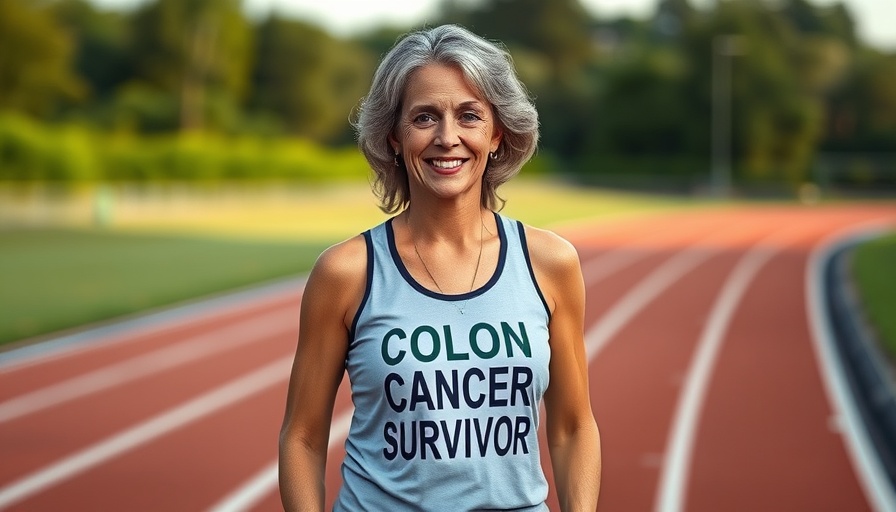
Misdiagnosing Potentially Deadly Symptoms: A Closer Look
In a startling revelation, a 40-year-old personal trainer found herself facing life-altering news after years of being misdiagnosed. Initially believed to be suffering from irritable bowel syndrome (IBS) and hemorrhoids, these symptoms masked a far more serious condition: colon cancer. This story underscores the crucial importance of comprehensive medical evaluations and the dangers that can arise from misdiagnosis.
The Symptoms That Were Overlooked
A variety of gastrointestinal symptoms led her to numerous doctor visits. Constant discomfort, irregular bowel habits, and increasing pain seemed first to be typical digestive issues. However, despite her proactive approach to health and fitness, the severity of her conditions was not taken seriously. These experiences encapsulate a wider issue faced by many, particularly that gastrointestinal symptoms in younger adults are often dismissed as benign, leading to serious, and sometimes fatal, consequences.
Understanding Colon Cancer: Symptoms and Risks
Colon cancer is the second-leading cause of cancer-related deaths in the United States, and awareness of its early signs is critical. Typical symptoms can include changes in bowel habits, blood in stool, unexplained weight loss, and persistent abdominal discomfort—symptoms that can easily be mistaken for less serious conditions. Regular screenings are typically recommended starting at age 45, yet many individuals dismiss their symptoms out of fear or a lack of knowledge. By shining a light on this personal trainer's story, we emphasize the need for vigilance and self-advocacy in health matters.
Healthcare System Challenges: A Call for Better Practices
The healthcare system often prioritizes speed and efficiency, which can overlook nuances in patient histories. Medical professionals frequently rely on standardized treatments for common conditions, which in turn can lead to dangerous oversight. This case reveals how critical it is for patients to advocate for themselves and for healthcare providers to adopt a more nuanced approach. Enhanced training on recognizing serious symptoms in younger individuals could prevent future misdiagnoses.
The Emotional Toll of Misdiagnosis
Aside from the physical implications, the emotional burden on patients dealing with a misdiagnosis can be profound. Often, patient self-esteem and mental health are severely impacted, as seen in this trainer’s experience—her identity built around fitness and health suddenly faced a devastating blow. Support systems, whether through family, friends, or communities such as fitness groups, can be vital for mental and emotional recovery.
Awareness Campaigns: Educating the Public
Raising awareness about the signs and symptoms of colon cancer is paramount. Initiatives like National Colorectal Cancer Awareness Month emphasize the importance of regular screenings and public dialogue surrounding digestive health. Most importantly, these campaigns need to reach a broad audience, ensuring that individuals understand early warning signs and are encouraged to seek proper medical attention, regardless of their age or fitness level.
Future Predictions: The Role of Technology in Diagnosis
Looking ahead, advancements in technology could play a pivotal role in reducing misdiagnoses in healthcare. Artificial intelligence and machine learning technologies have the potential to analyze patient symptoms more holistically, offering suggestions for further testing when initial assessments yield inconclusive results. Investment in such technologies could greatly enhance preventive care in illnesses like colon cancer, ultimately saving lives.
Final Thoughts: Take Charge of Your Health
This personal story serves not just as a cautionary tale but as an impetus for individuals to take charge of their health. If you experience any persistent or unusual symptoms, don’t hesitate to advocate for further examinations. Remember, your well-being depends on your diligence and self-advocacy within the healthcare system.
As we reflect on the importance of awareness and prevention, we encourage you to share this story with others. Promoting knowledge about serious health conditions can save lives and help others face their healthcare journeys more confidently.
 Add Row
Add Row  Add
Add 




 Add Row
Add Row  Add
Add 

Write A Comment